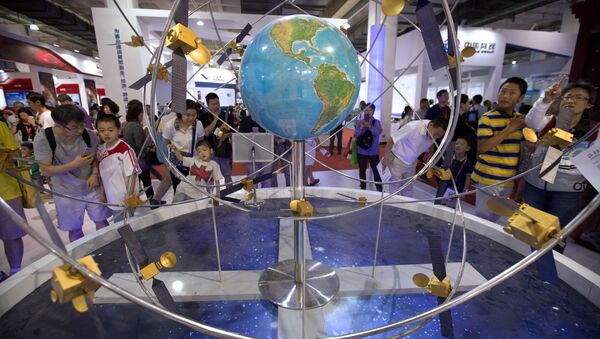As the global coverage started to spread, users had noticed the changes by themselves, seeing the bigger picture of BDS abilities.
Number of visible Beidou navigation satellites before and after the system starting global service on 27 Dec. pic.twitter.com/Iih6GCiW2Q
— dafeng cao (@dafengcao) 29 декабря 2018 г.
The coverage of the BDS systems in the Asian-pacific region is reportedly more precise than the one provided by GPS — the accurasy of 5 meters compared to 7, while the accuracy worldwide is still 10 meters.
#China’s BeiDou Navigation Satellite System hs started providing global services, w/ positioning accuracy of 10m globally n 5m in Asia-Pacific.
— Eva Zheng 郑怡斌 عائشة (@evazhengll) 28 декабря 2018 г.
Pakistan hs become the 1st country to use BDS ending its reliance on GPS.
Qualcomm,Samsung,Huawei n XiaoMi all support BDS adding to GPS pic.twitter.com/ScIN4ubqW8
Users became excited as Beidou might actually become another step in the development of the international navigation systems.
Best wishes to BeiDou from Sri Lanka 🇱🇰 🌹💐🌸🌼
— SriLankan Manpower (@yamunaoverseas) December 28, 2018
Nice overview of the quickening pace of satellite launches for Beidou — China's alternative to GPS
— Peter Martin (@PeterMartin_PCM) 28 декабря 2018 г.
China started work on the satellite navigation and positioning system in the 1990s to reduce its reliance on foreign technologieshttps://t.co/KdUoDin13D pic.twitter.com/UZlA2oCTZL
GREAT! Competitions in space. American no longer have monopoly (other than the monopoly money game).
Don't be surprised the Chinese BeiDou Navigation System turn out to be better n more accurate than the USA GPS. pic.twitter.com/HYePd2L0PT
— Andrzej Żersłup (@zerslup) December 27, 2018
China's remarkable achievement: After America's GPS, Russia's Glonass and Europe's Galileo, China's BDS (rolled out ahead of schedule) becomes the fourth global navigation satellite system. With BDS, China can employ guided strike weapons in war even if access to GPS were denied.
— Brahma Chellaney (@Chellaney) December 28, 2018
READ MORE: China Successfully Launches 41st BeiDou Navigation System Satellite
Xie Jun, the deputy chief designer of the system, said the goal of the design of BeiDou-3 is to provide services with comparable accuracy to those of the third generation of the Global Positioning System owned by the United States as well as Europe’s Galileo system.
"We have seen great potential in the BeiDou system," said Sabira Khatun, a professor specializing in electronics engineering at Universiti Malaysia Pahang, emphasizing that the system has brought opportunities for academic cooperation on navigation between the two countries.
“Cooperation on the BDS is of special significance for the Belt and Road construction,” said Mohamed Ben Amor, secretary general of the Tunisia-based Arab Information and Communication Technology Organization, adding that the next step is “to achieve further connectivity and both sides can apply the BDS to promote regional technological and economic development.”
In May 2015 China and Russia signed the BeiDou-Glonass system compatibility and interoperability cooperation agreement. Cooperative projects between China and Russia include the development of chips for satellite navigation applications and autonomous vehicles in agriculture, said Shen Jun, deputy director of the International Cooperation Center of the China Satellite Navigation Office.
After the launch of BeiDou-3, China plans to complete the BeiDou system, with its global network launching more than 30 satellites by 2020.




